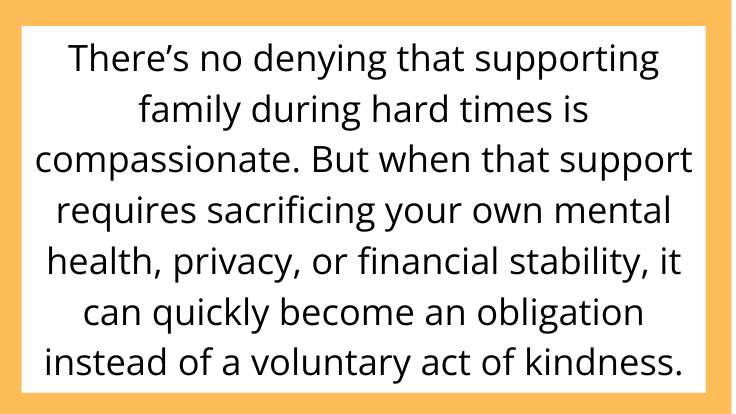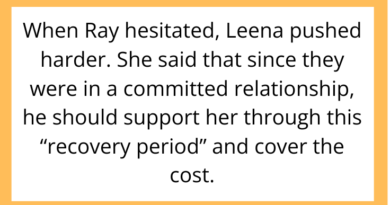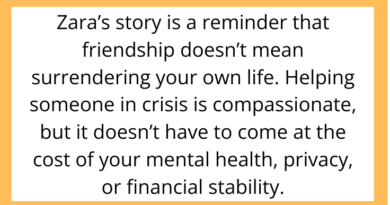AITAH for Not Letting My Partner’s Adult Son Move Back In?
I came across a compelling post on r/AITAH that struck a nerve with countless readers: Am I the problem for refusing to let my partner’s adult son move back into our home?
This scenario is more common than you might think. As adult children return to the nest in tough times, the lines between support and overstepping boundaries get blurry. Let’s break this down step by step.
The Situation: A Home Meant for Two Becomes Crowded Again

The original poster (OP) shared that after years of saving and finally purchasing a modest two-bedroom home, they were enjoying the peace of living alone with their long-term partner.
Then, OP’s partner’s 27-year-old son suddenly lost his job and asked to move in “just for a few months.”
OP didn’t feel comfortable with this arrangement. They worried it would disrupt the household, strain finances, and damage the relationship dynamics. When OP said no, their partner accused them of being heartless and selfish.
Cue the Reddit drama.
The Pressure of Family Obligations

When Helping Family Feels Like an Obligation Instead of a Choice
There’s no denying that supporting family during hard times is compassionate. But when that support requires sacrificing your own mental health, privacy, or financial stability, it can quickly become an obligation instead of a voluntary act of kindness.
One commenter on Reddit wrote that they allowed their sibling to move in “temporarily,” only to have them stay three years rent-free, causing constant tension.
The Guilt Factor: Why Saying No Feels So Wrong

It’s common to feel like a villain when you draw a boundary, especially when someone you care about is struggling. Guilt is powerful—and manipulative people often exploit it.
In this scenario, OP’s partner argued that any decent person would agree to help. But as many Redditors pointed out, you can still be a good person while honoring your limits.
Setting Boundaries Without Shame

Boundaries don’t mean you don’t care. They mean you recognize what you can and cannot handle. OP explained that they’d already offered to help the son with job applications and even pay for a month of rent elsewhere—but hosting him in their home simply wasn’t an option.
These are examples of healthy compromises that respect both compassion and personal space.
When One Partner Feels Entitled
A major tension point here was that OP’s partner expected their shared home to function as a safety net. This mindset can breed resentment.
A home should feel like a sanctuary. If one partner’s adult children can move in anytime without discussion, it undermines the sense of mutual respect and shared decision-making.
The Community Verdict: AITAH or Just Protecting My Space?

Thousands of Redditors weighed in, and the overwhelming consensus was: You are not the problem.
Most agreed that:
-
Adult children are capable of finding alternatives
-
It’s reasonable to say no to moving someone into your home
-
Offering other forms of support (help with rent, job search, etc.) is more than generous
Lessons for Anyone Facing a Similar Situation

If you find yourself in a similar bind, here are a few takeaways:
-
Talk openly. Explain why this arrangement isn’t sustainable.
-
Offer solutions. Temporary financial help, job referrals, or short-term lodging support can be compromises.
-
Stay firm. Don’t let guilt force you into decisions that damage your well-being.
-
Agree on household boundaries in advance. If you’re sharing a home, both partners should have equal say.



